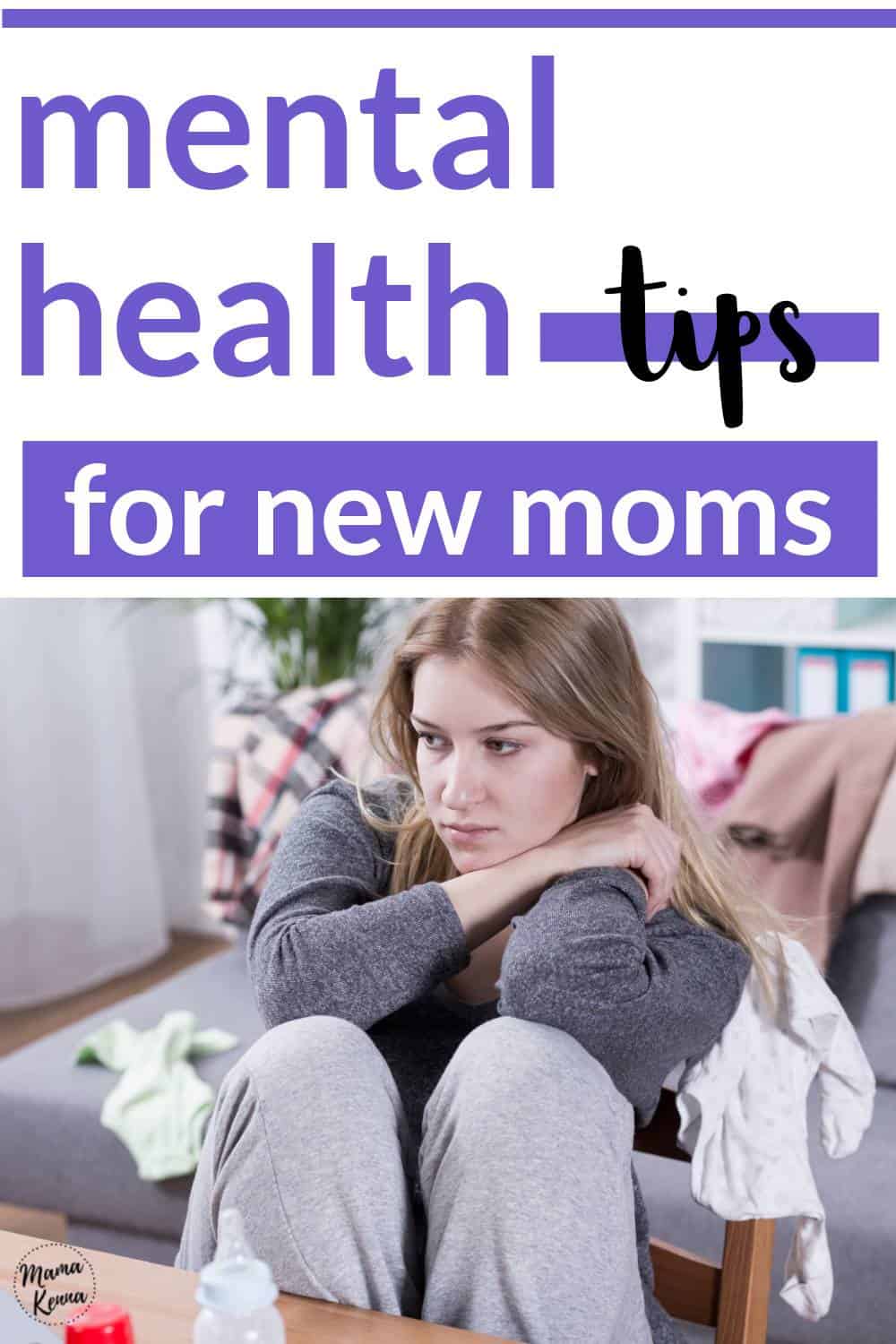9 Mental Health Tips for New Moms

Guest Post by Ralph Macey of SavantCare.com
There’s no doubt that being a mom is one of the most stressful jobs a woman can perform. But sometimes the stress may become so severe that it may affect the mental health of a new mom.
Commonly, every new mom may have to bear a series of physical and mental health issues after and sometimes even during the pregnancy.
Apart from the physical requirements and discomforts due to labor and birth, new moms may also become concerned about the health of their newborn and their lack of sleep post-delivery.
Chronic stress and postpartum depression can make new moms more tired than usual and can impact how they care for their baby.
In the past year, new moms have had other stress-giving factors from Covid-19.
Due to the pandemic situation, doctors and health workers are taking extra precautions while treating pregnant women and newborns.
After returning home, parents, especially new mothers, are experiencing social distancing from other family members. This situation only triggers prolonged isolation for new moms.
It is seen that since March of 2020, the levels of postpartum depression and anxiety have increased to a significant level among the new moms.
But as a new mom, you have a few simple ways to take care of your mental wellbeing.
Other than talking to friends, family, getting help and doing some mommy self-care, there are some mental health tips for new moms that may be useful to help maintain your mental health as a new mother.
(This post may contain affiliate links which means I may earn a small commission at no extra cost to you. You can read my full disclaimer policy here.)
Mental Health Tips for New Moms
1. Get Enough Rest
The best way to maintain your physical and mental health is to get enough rest.
You have just given birth to a baby so your body is not in normal condition. It will take some time to heal itself. And for that, you need to take plenty of rest.
Whenever you feel tired, take a rest. If you do not give your body the time to heal, it will affect your mood and can impact your mental health.
New babies do not have any fixed time for sleep. But it doesn’t mean you have to sacrifice your sleep all day long.
One possible way out of this issue is by taking a nap whenever your baby is asleep.
If you still have issues with proper sleep and have to depend on a third person such as a family member, a friend, a relative, or your babysitter. They may help you and take care of the baby while you may take the proper rest and heal yourself.
2. Follow a Proper Diet
After pregnancy, your body needs vitamins, minerals, protein, and other essential elements that can be consumed via food.
So, following a proper diet is very important. But a proper diet may also help you fight mental health illness.
To boost your mental health, you must consume plenty of fruits and green vegetables along with items rich in omega-3 fatty acids, like salmon.
Green leafy vegetables can help your brain be protective. Nuts, seeds, and legumes are also excellent brain supplements that can keep your mind healthy.
Being hydrated is necessary, so try to drink at least two quarts of water daily.
3. Do Some Light Exercises
After pregnancy, it is better not to work out too hard. But after you’ve gotten the okay from your doctor (normally at your 6-8 week postpartum checkup), you may definitely follow some light exercise routines.
To get back into a postpartum exercise routine, new moms should always be realistic and patient. It takes around 40 weeks to form a pregnant body, and it may take a similar time to get back into your former pre-pregnancy self.
4. Meditation
As per multiple studies, meditation can help you not only to sleep better, it can also help reduce symptoms of mental disorders such as depression and anxiety.
Apart from that, it will also reduce some of the psychological issues associated with postpartum depression.
You may try to meditate daily for at least 30 minutes. You could also do different yoga positions to boost your fitness and mind.
5. Be with Nature
Go for a walk with your baby and be outside for a little bit! And if it’s too hard to go out and do something, your yard, front porch of your house, or a balcony where you can get enough sunlight and fresh air will work just fine too.
Do not hesitate to get some!
Be with nature and get the essence of it. The sunlight will give you vitamin D and the fresh air can help boost your immune system as well as your mind.
6. Feed Your Baby
There is a lot of confusion about how you should feed your baby. Some people might suggest breastfeeding is the best way to connect with your baby, and it will help your mind to be stable.
But if one way of feeding isn’t working for you or it’s taking its toll on your mental health, it’s best to avoid it for a while.
7. Set Boundaries for Things
As a new mom, you have limited time and energy after taking care of your baby.
So, avoid anything that doesn’t serve you. That includes spending your spare time on social media or having a video chat with family members.
Don’t compare yourself to the images of other moms you see on social media. Most of what you see is fake and highly filtered.
Remember, most of the new moms around the world are sharing the same situation that you are going through.
So, just chill!
You may listen to soft music or read a book, or just watch a movie. It will give you peace of mind for the time being.
8. Keep Communicating
You should select a person with whom you may spend time and talk openly, and share your feelings.
It might be your spouse, your mother, your friend, or any loved ones who are caring for you.
No matter how depressed you are or how you feel, it is necessary to have one who can connect with your emotions and validate your experiences.
9. Take Medication if Needed
If you’re suffering from severe mental health illness, from the very beginning of your pregnancy, then you should follow the instructions of your doctor and take proper medicines.
Make sure you discuss with your doctor your depression and psychotropic drugs during your pregnancy. Make sure all the medication you are taking is safe for your baby.
After the baby’s birth, you should again consult your doctor and take medications, such as an antidepressant as it will help you feel better and give you the push.
Symptoms of Postpartum Mental Illnesses
Even though postpartum depression and anxiety are relatively common, they should not be ignored.
Symptoms of postpartum depression are more intense, last longer, and can eventually, interfere with your ability to care for your baby and do other daily tasks.
It can begin anytime during the first year after giving birth. It can even start during pregnancy.
Some signs of postpartum depression are:
- Depressed mood
- Excessive crying
- Loss of appetite
- Inability to sleep
- Loss of energy
- Intense irritability and anger
- Feeling of hopelessness
- Having trouble with bonding with your baby
- Thoughts of harming yourself and/or your baby
- Thoughts of suicide
As a new mom, it’s normal to be worried about things. But what’s not normal is those thoughts to always be there and not go away making it so that it’s getting in the way of life and baby.
Below are some signs of postpartum anxiety:
- Worry (constant or almost constant) that can’t be eased
- Difficulty sleeping
- Fatigue
- Racing thoughts
- Shakiness
- Heart palpitations
Remember to Get Help
It’s quite normal to feel emotions after having your baby, but if you’re consistently having issues with your mental health and showing symptoms of postpartum depression, don’t wait…get help.
If you are experiencing any of these symptoms and it’s not getting better tell your doctor.
And if you are having thoughts of harming yourself or your baby, thoughts of suicide, or having trouble taking care of your baby or doing daily tasks get help as soon as possible.
As soon as you feel that something is wrong with you, connect with your doctor or seek help from other sources.
Don’t wait until it’s too late.
(Please keep in mind that I am NOT a doctor, nurse, therapist, or any other kind of medical professional. I am just a Mom who is going off of her own experience and research. You can read my full disclaimer policy here.)
Other Posts You May Like:
Must Haves for your Postpartum Care Kit
Postpartum Care Plan fir Vaginal Deliveries
The Best Postpartum Pads for Heavy Bleeding
The Best Postpartum Clothes that You Can Get on Amazon
How to Take a Postpartum Sitz Bath + The Benefits!
Super Weird Postpartum Symptoms
Your mental health is important. So remember to take care of yourself too! And if you found these mental health tips for new moms helpful, share this post. Thanks!

